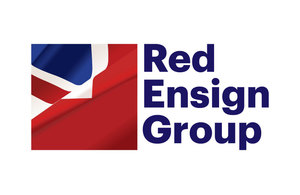III Code Audit – excellent result for the United Kingdom
The UK continues to hold its own as a leader in the maritime world after the leading international agency responsible for safety of shipping carried out an audit that shows how well it does its work.

Red Ensign Group
Auditors from other Member States of the International Maritime Organization (IMO) and the IMO Secretariat praised the way in which the UK oversees and manages the delegation of statutory survey work to its Recognised Organisations. It also highlighted the work carried out jointly by the MCA’s Hydrography team and UK Hydrographic Office as best practice.
The IMO audit examined how the UK and wider Red Ensign Group (made up of Overseas Territories and Crown Dependencies) meet their flag, coastal and port state obligations and responsibilities. It was the first time such an audit had been carried out remotely because of the ongoing challenges of COVID-19.
It also highlighted how well the Red Ensign Group worked together towards overall compliance. It has specifically recommended that this level of focus should continue to build on the continuing success as an example to other IMO Member States.
They particularly singled out the work being done around III Code coastal state compliance with the Overseas Territories and want to see how they will achieve the maximum benefit from the Code and its conventions as they progress.
Their audit revealed just two findings - the average tends to be in double figures – both of which were already being addressed before the audit.
Firstly, there was a finding around a backlog of legislation related to amendments of Safety of Life at Sea (SOLAS) requirements. This is already under way. However, the UK does already have effective measures to make sure the requirements are implemented through marine notices and instructions to surveyors. The auditors accepted that the UK’s measures were appropriate.
Secondly, two Red Ensign Group members were found not to have brought in requirements under search and rescue provisions of SOLAS Chapter V (Safety of Life at Sea) for coordination plans for passenger ships which call regularly.
Both administrations have already done a lot of the work towards this finding, including bringing in several important search and rescue safeguards from measures such as establishing a central alerting post to, in some cases, forming a coastguard, increasing training, exercising and upgrading of equipment.
There is also ongoing work to continually review and improve coastal state requirements with support by the Maritime and Coastguard Agency through the UK Government’s Conflict Stability and Security Fund.
Work will continue to address the findings but also to uphold and build on the high standards that continue to be demanded and met across the UK and the wider REG.
Brian Johnson, Chief Executive of the MCA said:
The result is significant for us all and importantly, means we retain our position as a world leading maritime state. It shows that the UK and the Red Ensign Group take our international obligations seriously.